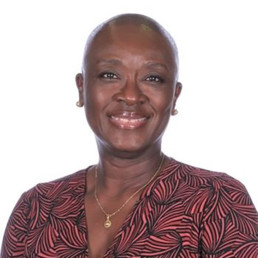
Written by Remi Atoyebi
Remi Atoyebi is an experienced Headteacher and ICF Certified Transformational and Leadership Coach. She is a contributor to The Headteachers’ Handbook and a mentor to over 50 school leaders across the UK. As a leader from a Global Majority background, she is passionate about inclusive leadership, psychological safety, and creating safe spaces for underrepresented voices.
It’s a question I’ve been asked more than once as a Headteacher; sometimes half-joking, other times with genuine curiosity. And it’s a fair question.
Headship is not a role you can switch off from at 5pm.
The decisions you make don’t just affect timetables or budgets, they affect children’s lives, families’ futures, and colleagues’ wellbeing.
The weight of it can follow you home and sit on your shoulders late into the night.
Budgets that don’t add up. Safeguarding concerns that keep you alert long after the working day has ended. Government directives that land with little warning and less thought through, for practicality. Staff who are stretched to their limits. Parents with understandable and sometimes impossible expectations. The list is endless.
Every single day, decisions land on your desk that don’t come with neat answers. Some are uncomfortable. Some are deeply personal. Some are triggering. Some weigh far heavier than others.
So how do I sleep at night?
For me, it always comes back to moral purpose.
Headship is full of noise. There are trends that come and go, policies that feel like they change with the seasons, performance tables that never tell the full story, and the ever-present pressure of the loudest voices in the room.
If you’re not careful, you can find yourself reacting to the noise instead of leading with clarity.
When the noise builds, I strip everything back to two simple questions:
- Does this decision serve our core purpose, or is it just noise?
- How will this decision impact the children?
These two questions have become my compass. They stop me being pulled off course by distraction or pressure, and they bring me back to why I stepped into leadership in the first place.
Of course, that doesn’t mean decisions become easy. Often, the morally purposeful choice is also the hardest one.
It might mean saying no to the “shiny” initiative that looks good on a glossy plan but adds very little to learning. Michael Fullan’s assertion about ‘proverbial Christmas Tree Schools’ comes to mind! Schools that look dazzling from the outside, covered in ornaments and trimmings, but when you step closer you realise the tree itself isn’t strong. The core business of learning has to be robust; otherwise, all the sparkle is just distraction.
It might mean investing in staff development or SEND provision, even if it means delaying something more visible to the outside world. It might mean having a difficult, face-to-face conversation with a colleague because the children deserve better, when it would be far easier to avoid the conflict.
It also means living with the discomfort that you won’t please everyone. Some will disagree with your choices. Some will even question your motives. That’s the nature of leadership.
And yes, I don’t always get it right. None of us do. Headship is messy. There are days I’ve looked back and wished I’d handled something differently. But I’ve learned this: I can sleep at night when I know my decisions were rooted in moral purpose. I can live with mistakes made for the right reasons.
What I couldn’t live with is drifting into decisions made out of convenience, fear, or the temptation to follow the crowd.
That’s the difference for me. That’s how I rest; by holding fast to the belief that our work is about the children in front of us, not the noise around us.
Because at the end of the day, headship isn’t about me. It’s about them; the children whose futures are shaped by the choices we make today.
So, if you are leading a school, a team, or even a classroom, I’d invite you to pause and reflect:
- What’s the yardstick you measure your decisions against?
- When the noise gets loud, what helps you stay anchored?
- And most importantly, how will today’s decision make life better for the pupils?
If we can answer these questions with honesty and courage, we will not only serve our children better, but we will also find our own peace of mind. Because when your choices are rooted in purpose, you really can put your head on the pillow at night and rest.
And that, for me, is the only way to do this job.
